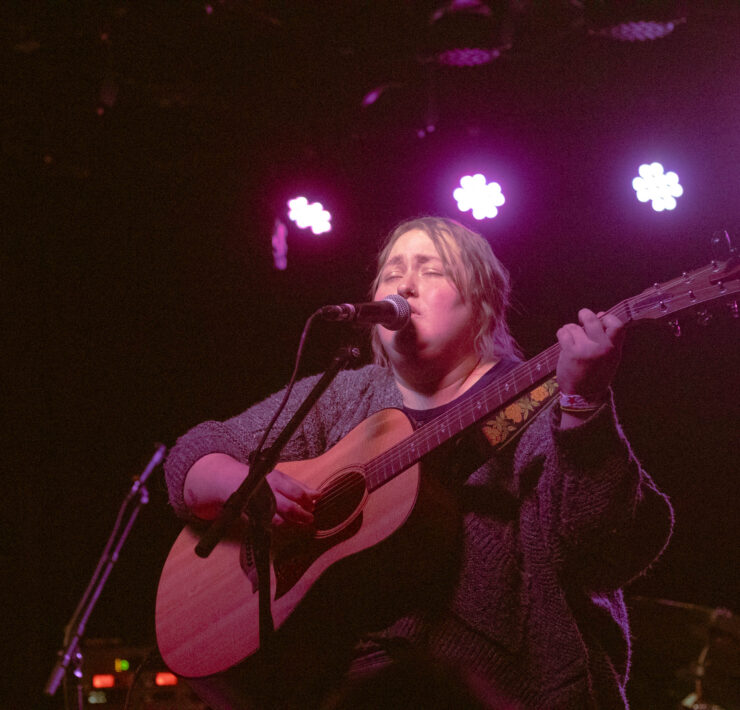Amendment 72’s Cigarette & Tobacco Tax Spike Draws Ire on Funding

Amendment 72 has lit up to be one of the most hotly contested items on the ballot.
If approved, the measure would increase the state tax on a pack of 20 cigarettes from 84 cents to $2.59, as well as hike the state tax on other tobacco products from 40 to 62 percent of the sale price.
Proponents point to the state’s ranking compared to tobacco taxes in other states and the distribution of additional revenue to go toward tobacco prevention and other health initiatives in Colorado.
However, distribution of those funds is a sticking point for the main opposition.
“Why does something like this need to be in the constitution?” asks Karen Crummy.
Crummy, a spokeswoman for No Blank Checks in the Constitution, said it should be statute — legislation more easily changed than a constitutional amendment.
But proponents argue that’s the point.
“We opted to place this into the constitution to protect that money,” says Jodi Radke, regional director of the Campaign for Tobacco Free Kids. She and others with The Campaign for a Healthy Colorado don’t want the legislature to use those funds for other programs and services if the state hits a budget crisis.
The measure promises to spend 18 percent of up to an estimated $36 million annually in additional taxes collected on health-related programs like Medicaid, children’s health care, tobacco-education programs, and disease prevention and treatment.
When the amount collected from the additional tax exceeds $36 million, it’s promised to be spent on:
• Research grants to study tobacco-related health issues (27%)
• Education and prevention, and other programs encouraging people to stop using tobacco (16%)
• Grants to improve health, find employment, and prevent homelessness for veterans (14%)
• Grants for child and adolescent mental health and substance abuse prevention treatment (10%)
• Construction or improvements to community health centers or providers that serve predominantly low-income patients (10%)
• Student loan repayment and training for health care professionals working in rural or underserved areas of the state (5%)
However, the group No Blank Checks in the Constitution doesn’t see that as productive. Crummy argues that some of these programs are too vague and this amendment changes the constitution to commit to these figures unless a new constitutional amendment is approved by voters. She also points out that less than 20% of the funds collected by the tax would actually be used for smoking cessation.
“Amendment 72 raises tobacco taxes by $315 million per year, but dedicates less than 20% of the new tax money to smoking prevention. If we’re going to tax smokers hundreds of millions more per year, then more of the new tax money should be dedicated to helping smokers quit or keeping kids from starting,” the group states.
But others argue there’s a reason for those figures.
“That’s a very specific number and target to bring Colorado in line with what the CDC recommends for states our size,” explains Polly Anderson, vice president of strategy and financing for Colorado Community Health Network.
Anderson says this provision is especially important for the LGBT community. She points to information on the Centers for Disease Control’s website that states 23.9% of lesbian, gay, and bisexual adults in the United States smoke cigarettes, while just 16.6% of heterosexual adults smoke. The information at CDC.gov references the study Current Cigarette Smoking Among Adults — United States, 2005–2014. Morbidity and Mortality Weekly Report, 2015 for those statistics.
Anderson says “big tobacco” is aware of this information and therefore targets advertising to the LGBT community.
Proponents of Amendment 72 also point out that Colorado is lagging behind other states in its cigarette tax.
Colorado ranks 38th compared to other states for the highest cigarette tax. The average is $1.65, according to the website. The $1.75 tax increase would be tacked on top of the existing federal tax of $1.01 per pack of cigarettes.
Colorado collected about $200.3 million from cigarette and tobacco taxes in the 2015–16 budget year, of that $143.7 million (76%) was spent on health-related programs (which is stipulated in the constitution), and $56.6 million was spent on other programs, according to the Blue Book of information on ballot items.
The amendment got to the ballot via a petition.
Arguments in favor of the tax increase claim higher prices deter smoking and the revenue collected improves health care, according to the Colorado Blue Book.
Arguments against state that the revenue is earmarked for specific programs. It also states that tripling the tax will affect low-impact users the most and people with low incomes are more likely to use tobacco products and have a more difficult time giving them up.
“While we want to help everyone who wants to stop smoking, this isn’t the way to do it,” says Crummy.
Here’s the ballot language:
“Shall state taxes be increased $315.7 million annually by an amendment to the Colorado Constitution increasing tobacco taxes, and, in connection therewith, beginning January 1, 2017, increasing taxes on cigarettes by 8.75 cents per cigarette ($1.75 per pack of 20 cigarettes) and on other tobacco products by 22 percent of the manufacturer’s list price; and allocating specified percentages of the new tobacco tax revenue to health-related programs and tobacco education, prevention, and cessation programs currently funded by existing constitutional tobacco taxes; and also allocating new revenue for tobacco-related health research, veterans’ programs, child and adolescent behavioral health, construction and technology improvements for qualified health providers, educational loan repayment for health professionals in rural and underserved areas, and health professional training tracks?”










